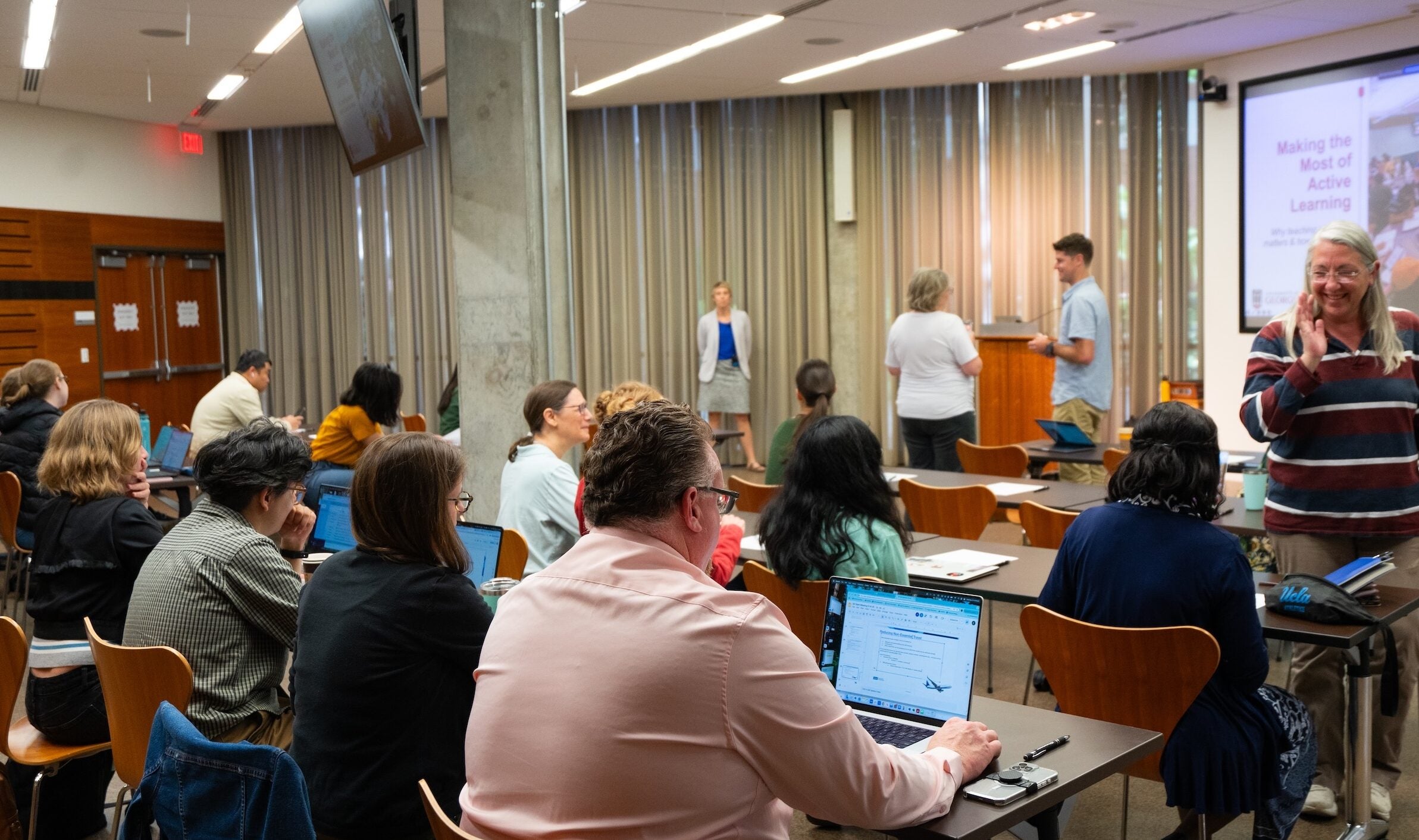Digital Accessibility for Teaching and Learning
Digital accessibility is the practice of creating digital content so that all people can access and use the materials, including individuals with disabilities who utilize assistive technology. In the context of instruction, digital accessibility considerations impact the design and delivery of course material, as well as the structure of learning activities involving educational technology.
The Teaching and Learning Center (TLC), Bruin Learn Center of Excellence (CoE), Disabilities and Computing Program (DCP), and additional campus partners are working to enhance our digital accessibility resources for instructors in alignment with UCLA and UC commitments to inclusive excellence. The U.S. Department of Justice has mandated that state and local government institutions, including UCLA, meet WCAG 2.1 Level AA standards by April 24, 2026, to ensure compliance with accessibility laws and regulations (see final rule). To meet these guidelines, instructors may need to adjust some course materials for digital accessibility, such as adding alternate text to images, confirming that captions or transcripts are available for video and audio content, and ensuring documents such as PDFs are shared in a format that all students can access and understand. Making course materials accessible supports the university’s ongoing commitment to elevate teaching and create learning environments where all students can thrive.
Learn how to make your course materials accessible.

Efforts are underway to enhance digital accessibility at UCLA:
Strengthen Training & Resources
Needs Analysis → Strategy Development →Targeted Interventions
Collective Engagement & Adoption
Campus Communications on Digital Accessibility
Buin Post: Advancing Digital Accessibility In Teaching and Learning at UCLA
Standards and Guidelines
ADA Ruling on Digital Accessibility
On April 24, 2024, the Department of Justice (DOJ) published a new rule on digital accessibility under Title II of the Americans with Disabilities Act (ADA). This rule requires the University’s web content, including academic course content, to be accessible starting on April 24, 2026.
Web Content Accessibility Guidelines (WCAG) 2.1
The Web Content Accessibility Guidelines (WCAG) 2.1 outline the requirements for web accessibility. See also: Video Introduction to Web Accessibility and W3C Standards
UCOP IT Accessibility Policy
The University of California Information Technology Accessibility Policy requires compliance with the WCAG 2.0 level AA standards for all web-based information, but an update is in progress to change the policy standard to WCAG 2.1 level AA to align with federal accessibility regulations before they take effect. You can view standards and best practices on the UCOP website on electronic accessibility.
Proposed revisions to UCOP Policy on Accessibility
The University of California’s Chief Information Officer has released proposed revisions to the Presidential Policy IMT – 1300 Information Technology (Accessibility) based on the review of all UC Academic Senate divisions. The proposed policy applies to UC-developed, procured, or provided information technology, including course content such as syllabi, readings, videos, Learning Management System materials, and other instructional technology.
Campus Partners
Disability and Computing Programs
The mission of UCLA’s Disabilities and Computing Program at the Office of Advanced Research Computing is two-fold. The first goal is to facilitate the integration of adaptive computing technology into the areas of instruction, study, research, and employment at UCLA. The second goal is to make information – including electronic text and multimedia – accessible to all students, faculty and staff.
Digital & Technology Solutions
DTS is the central IT department at UCLA and is home to the Bruin Learn Center of Excellence (CoE). DTS provides support to instructors on digital technology broadly and CoE supports course instruction through the learning management system, Bruin Learn.
Center for Accessible Education
The mission of the Center for Accessible Education (CAE) is to create an accessible, inclusive, and supportive learning environment. Through a collaborative effort with faculty, staff, and students, the CAE facilitates academic accommodations, disability advocacy, and serves as an educational resource for the campus community.